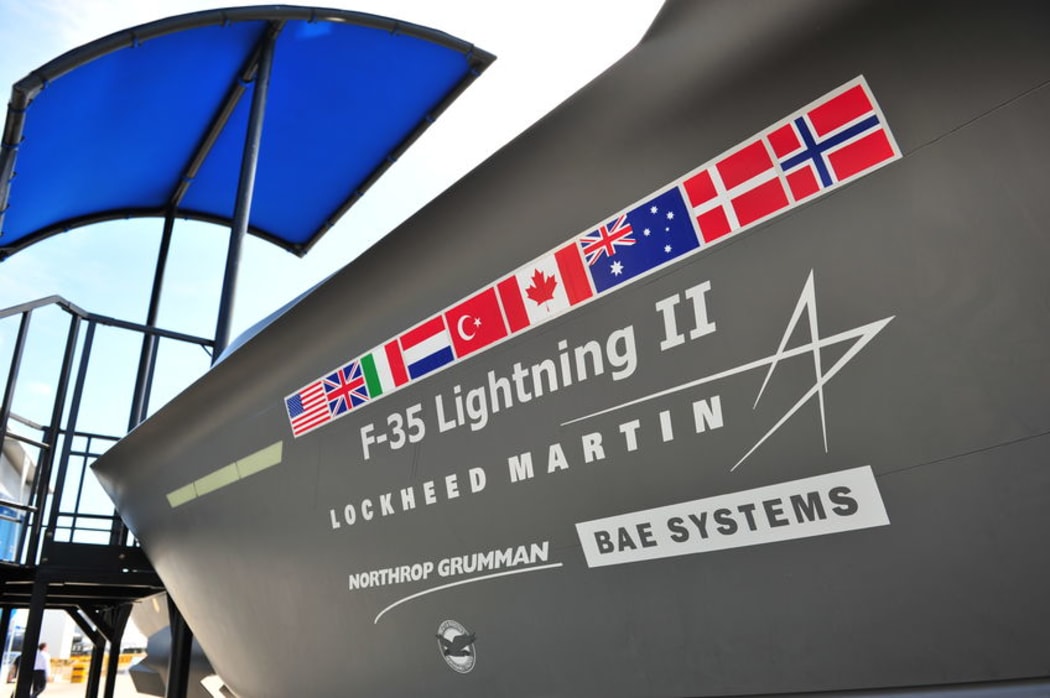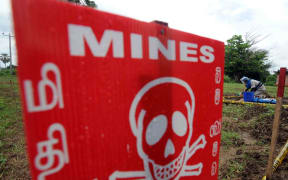The Accident Compensation Corporation has admitted investing in six companies on its exclusion list, including munitions company Lockheed Martin.

Photo: 123RF
Despite questions being raised about the legality of such investments ACC said it was confident it had not broken the law.
The shares in Lockheed Martin were bought by a collective investment vehicle, which ACC was part of, run by Orbis Investment Management in Australia.
A collective investment vehicle is an entity that allows a group of investors to pool their money together to invest in companies instead of buying shares individually.
Documents obtained by the Green Party under the Official Information Act show Orbis first bought shares in Lockheed Martin in July last year.
At its peak ACC had indirect investments worth $1.4 million in Lockheed Martin, a company ACC said it was not allowed to invest in because of its involvement in the development or production of cluster munitions.
The investment was only picked up in December 2015 after a routine review. At that time ACC's investment in Lockheed had dropped to $257,875.
ACC, which has a $33 billion investment fund to help pay for the medical treatment it provided, had around $516m invested in the Orbis fund in total.
At the time the Lockheed investment was discovered ACC's ethical investment policy did not apply to pooled funds like Orbis, but the agency acknowledged there was a risk of unknowingly investing in companies on its blacklist from time to time through such vehicles.
It is illegal to knowingly invest in companies that make cluster bombs under the Cluster Munitions Prohibition Act 2009.
ACC said Lockheed Martin confirmed to them in March that it no longer produced cluster munitions and it would also not sell rockets to customers who intended to use them to fire cluster bombs.
ACC would not release any legal advice it sought on the issue in relation to its investment in Lockheed Martin and it declined to be interviewed but said it was confident it had acted within the law.
"ACC has not invested in any collective investment vehicle with the intention or knowledge the monies would be used in the development or production of cluster munitions.
"The securities purchased by the collective investment vehicle were purchased in the secondary market, which means the funds would have flowed to the previous owner of the securities rather than Lockheed Martin.
"ACC is therefore satisfied its investment in pooled funds and collective investment vehicles is lawful and does not breach the Cluster Munitions Prohibition Act," it said in a statement.

Julie Anne Genter Photo: GREEN PARTY
Green Party finance spokesperson Julie Anne Genter is not so sure.
"They were aware that while investing in a collective investment vehicle there maybe some investments that weren't in line with their investment policy.
"There is a question whether or not they were in breach of the law because they hadn't explicitly excluded it from their collective investment vehicle contract," she said.
The Green Party lodged a request for information about ACC's collective investment vehicles in February and did not receive a response until July.
During that time ACC ordered Orbis to get rid of its investments in Lockheed Martin and the four other banned companies it had shares in.
The last Lockheed shares were sold in February and ACC upgraded its ethical investment policy to include pooled funds in March.
While ACC should be congratulated for making changes it appeared to have only done so after being caught out, Julie Anne Genter said.
"It seems it has been a result of media scrutiny and questions that have been asked that have provoked them to have greater oversight over where their money is going," she said.
The other companies ACC found it had indirect investments in were Imperial Brands, British American Tobacco, Serco and Barrick Gold.
Government policy prohibits ACC investing in tobacco companies. Investments in Serco are excluded because of its work in nuclear bases and Barrick Gold due to its environmental and human rights records.
Separately, ACC also mistakenly bought bonds issued by Freeport McMoRan, an American mining company with a track record of environmental and human rights abuses but got rid of them once it realised the error.
ACC still invests with Orbis, and from December it will create a segregated fund for ACC that will not invest in any of the companies on its exclusion list.
The corporation has a total of $625.9m invested in unlisted collective investment vehicles and a further $24m in various listed investment vehicles that hold portfolios of listed equities.






